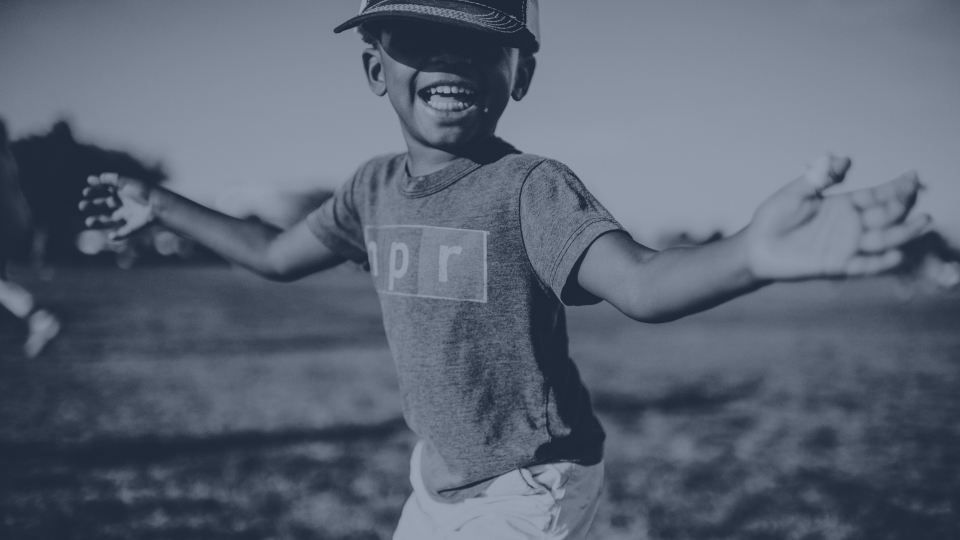Childhood, goes the conventional wisdom, should be a time of innocence, discovery, and careful guidance. Unless—as generations of Black people can attest—the kids are Black. In this country, Black children do not get the luxury of having their innocence presumed and protected by the majority-White society in which they live.
Known as "adultification," examples of this disturbing phenomenon are rife. In a recent viral video, a White NYPD officer can be seen repeatedly punching 14-year-old Kyonna Robinson in the head; in November, a 12-year-old boy in Richmond, VA was pinned to the ground and given a concussion by officers who had volunteered to run the tennis program he attended; in October, a White woman in Caldwell, NJ called police when she saw 9-year-old Bobbi Wilson spraying a homemade insecticide on lanternflies in their neighborhood. "There’s a little Black woman walking, spraying stuff on the sidewalks and trees," the woman told the dispatcher. "I don’t know what the hell she’s doing. Scares me, though.”
It has always been so for Black children in this country, since well before the nation's founding. Treated by White society as expendable, an enslaved workforce, a nuisance, or a menace, Black children are not just dehumanized along with the rest of their communities but routinely treated as if they were adults, their childhood dismissed, denied, and stolen, with those responsible only rarely held to account.
In their research for “The Essence of Innocence," CPE Co-founder and CEO Phillip Atiba Goff and his co-authors found that the period of time during which White youth are not expected to be fully responsible for their actions can extend well into their late 20s. By contrast, Black children are often treated as adults by age 13, if not well before, regularly perceived as older, less innocent, and more threatening than their White same-age peers.
One alarmingly frequent outcome is that, in any interaction they may have with the country's criminal legal systems, Black children are routinely held to adult standards. Moreover, Goff and his co-authors found, a broadly-shared association in White-dominated culture between Black people and apes predicted racially disparate levels of police violence toward children who are Black.
The domino-like effect this has on the functioning of our criminal legal systems can be seen in the findings of two separate courts at opposite ends of the country. In March 2022, a Washington state intermediate-level appellate court issued a published opinion acknowledging frankly that “adultification is real and can lead to harsher sentences for children of color if care is not taken to consciously avoid biased outcomes.”
The Washington state court's determination came just three months after the Connecticut Supreme Court ruled that the 1993 sentencing of then-14-year-old Keith Belcher to an effective 60 years' incarceration was imposed illegally—a direct result of the sentencing judge's reliance on the false and racist superpredator theory.
The court found that the superpredator theory—which posits primarily Black children as potentially “radically impulsive [and] brutally remorseless"—amplified racist stereotypes and that, by relying on it, the trial court had violated Mr. Belcher’s right to due process.
There is some encouragement to be found in the fact that some in our criminal legal systems have begun to address this grievous reality, but as a growing body of deeply troubling evidence demonstrates, the simple truth remains that the vast majority of Black children who find themselves interacting with school resource officers, law enforcement, or the court system are met with rank dehumanization. The school-to-prison pipeline, itself a horrific expression of adultification, is frequently the reason these children find themselves in the country's criminal legal systems in the first place.
Take, for example, a recent CBS report on arrests of elementary school children. Inexcusable no matter the racial identity of the child in handcuffs, CBS found that in 2015, the most recent year for which the federal government has figures, half of the fifth-grade or younger children arrested were Black—despite only making up some 15% of their schools' population.
When Black children are held to adult standards, the harm goes far beyond their own lives and that of their families, the trauma affecting whole communities, not least because those responsible are so infrequently held accountable. Keith Belcher and his family had to wait nearly 30 years for the Connecticut courts to acknowledge its grotesque sentencing of a 14-year-old boy; the family of 14-year-old Emmett Till, tortured and murdered by a group of White men in 1955, is still waiting for someone to answer for his lynching.
It is incumbent on the adults of this nation—within our criminal legal systems and across society—to take every step to end the systemic adultification of Black children, rectify its appalling injustices, and address the destruction it has wrought on entire generations of Black communities. The moment may pass, but the impact does not. Every child deserves to be treated, always, as exactly who they are: A child.

